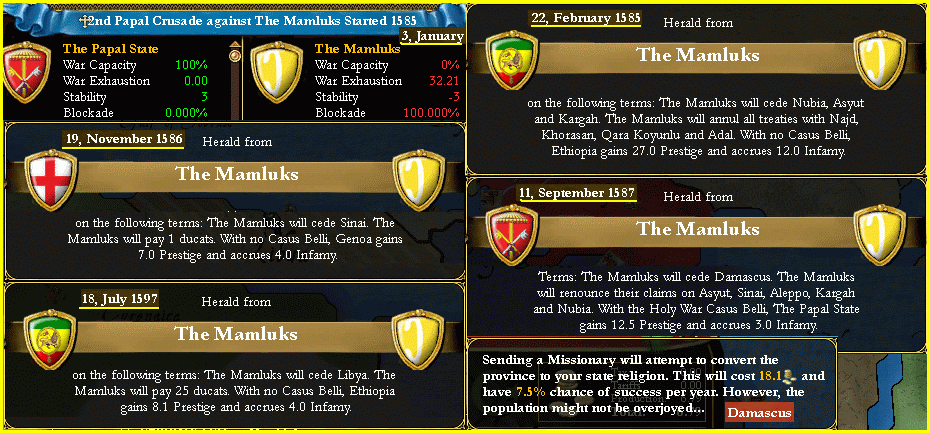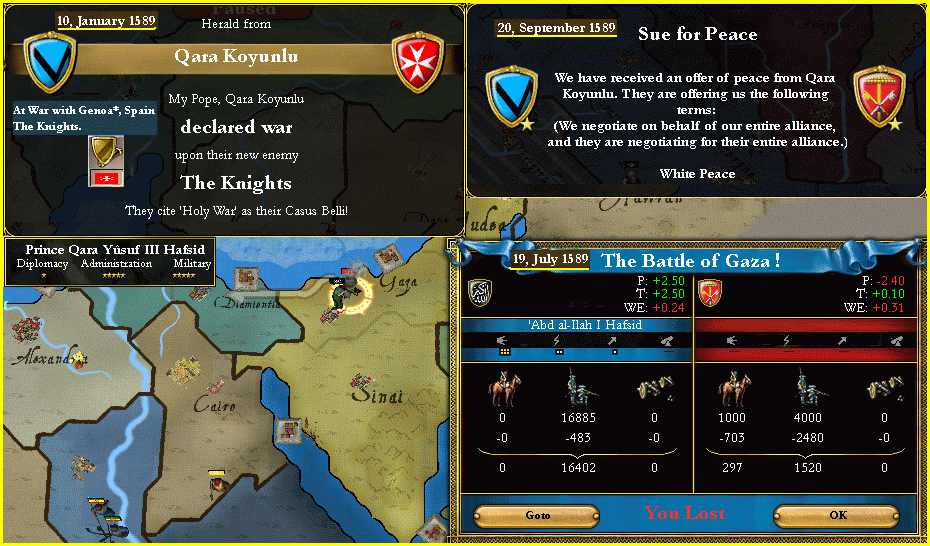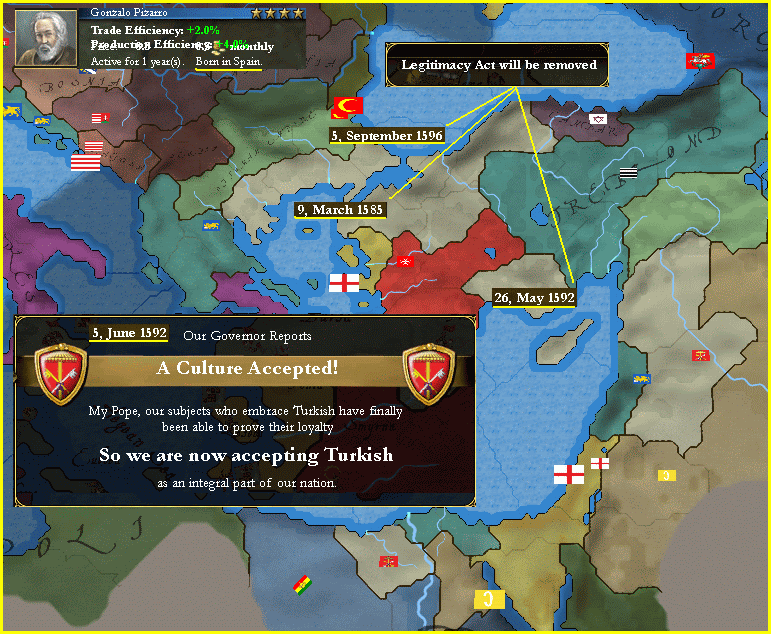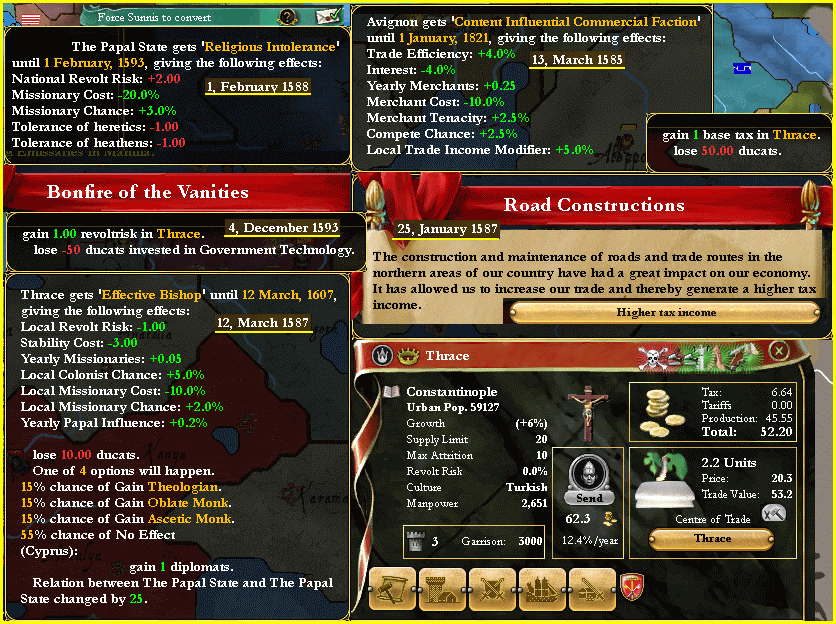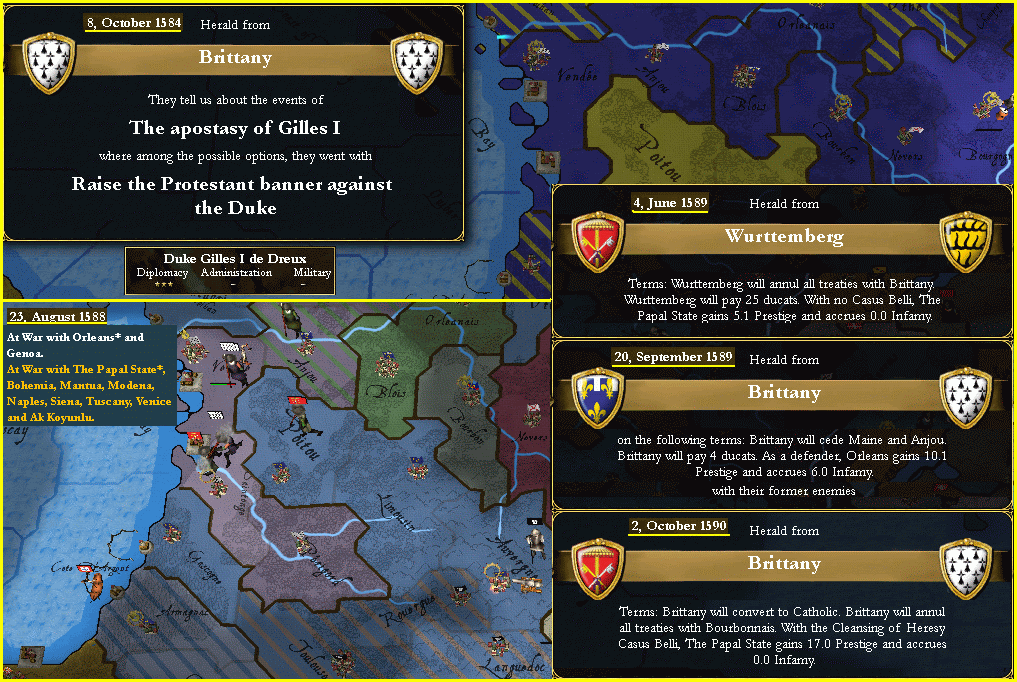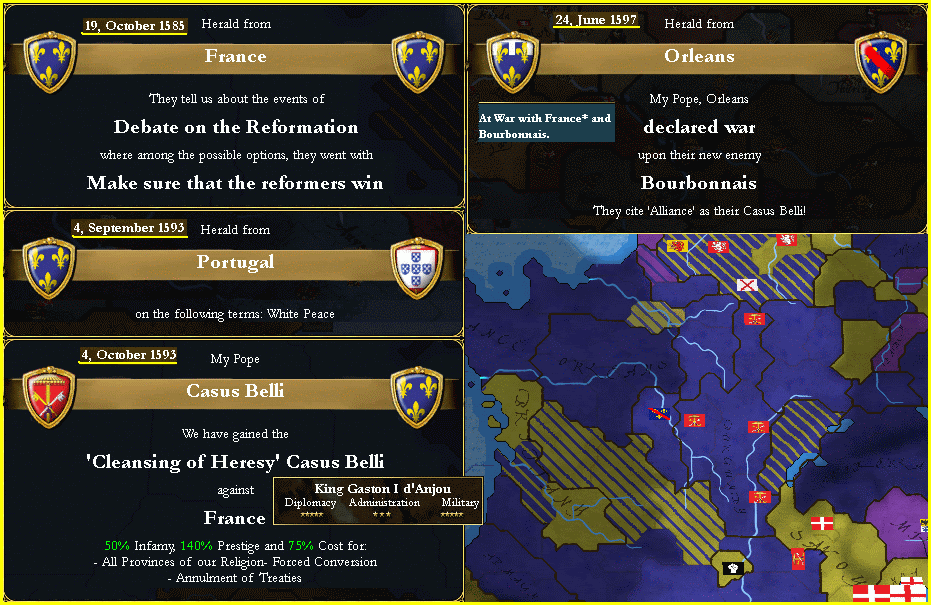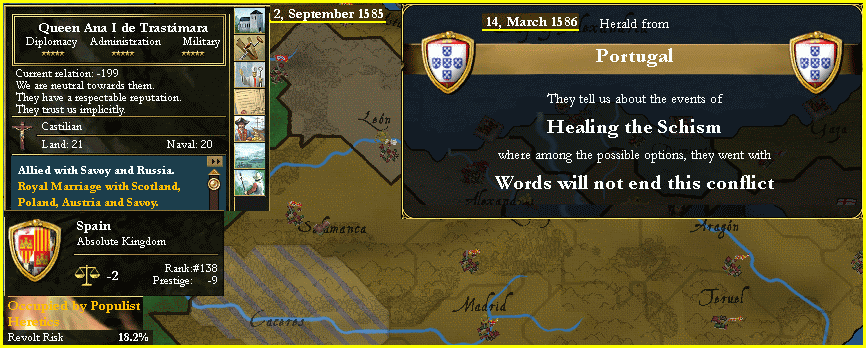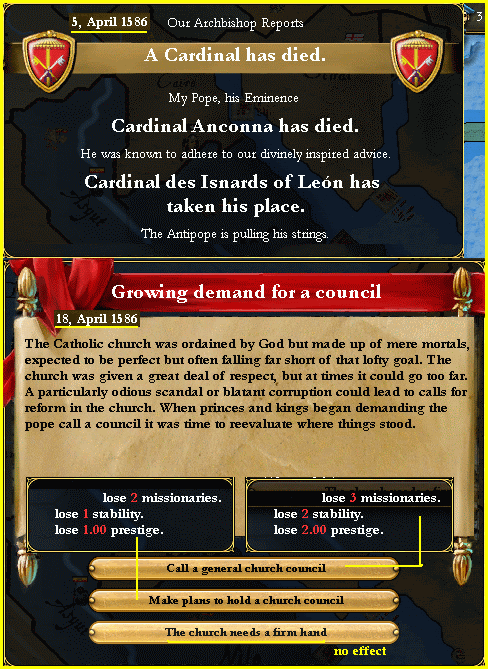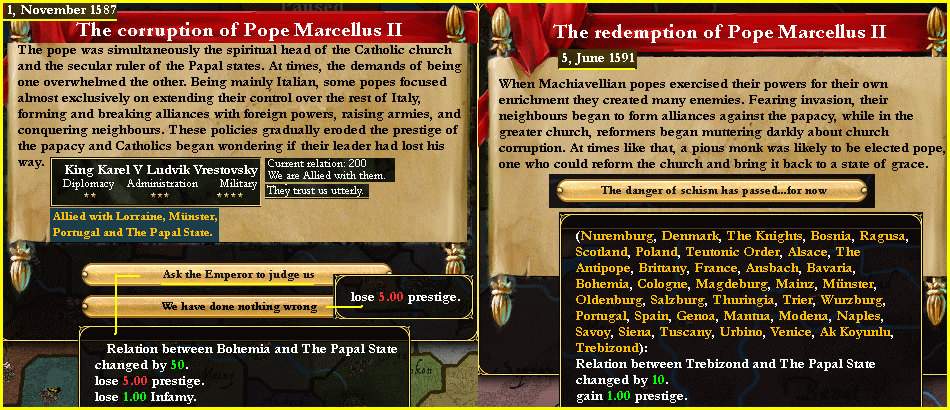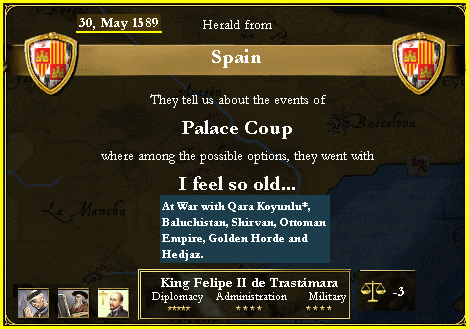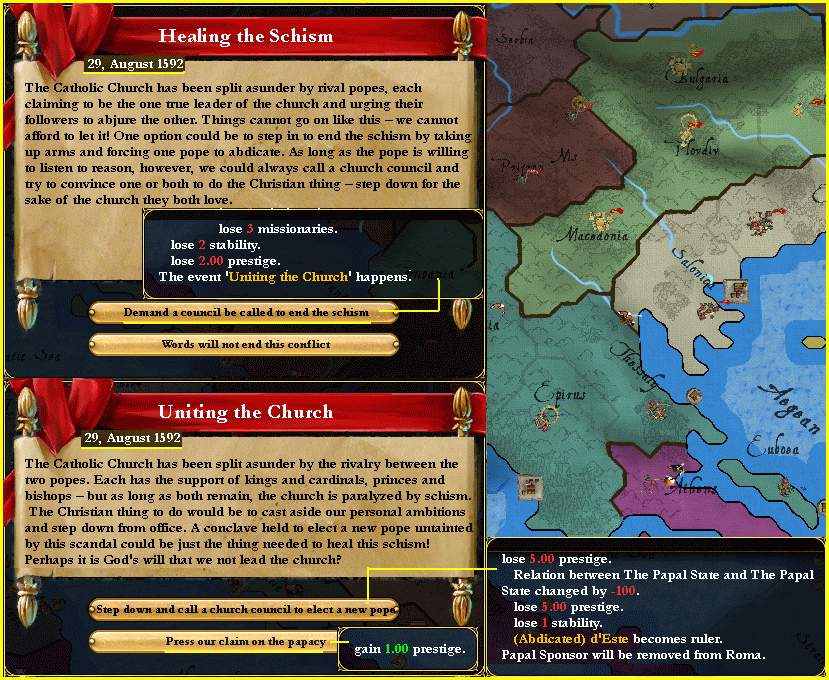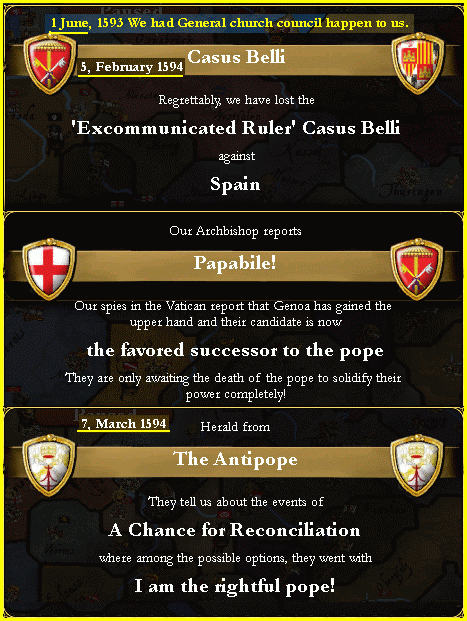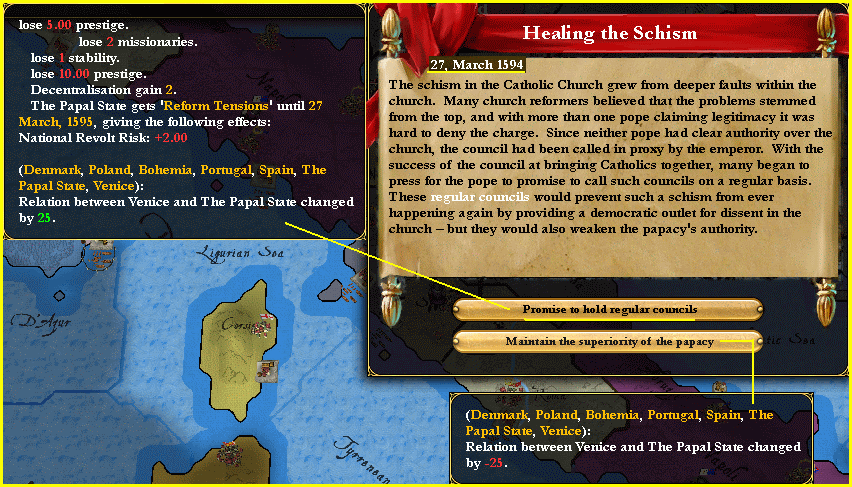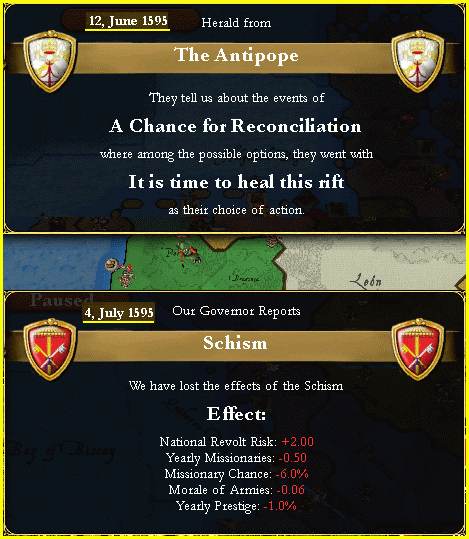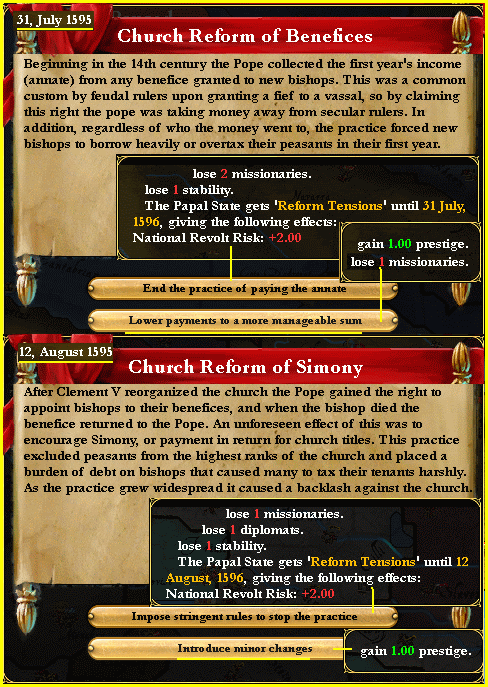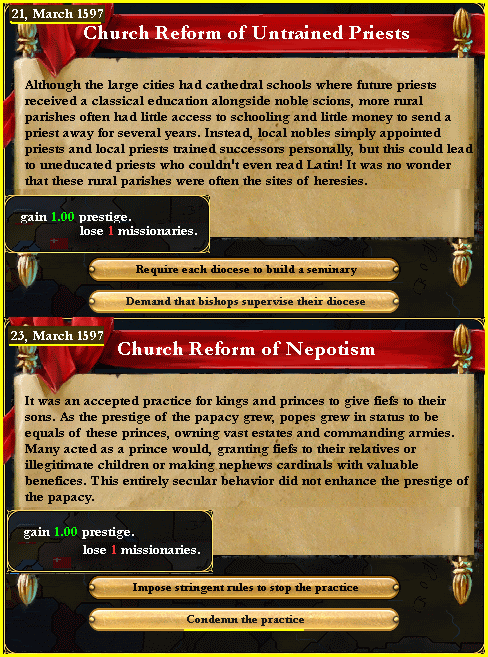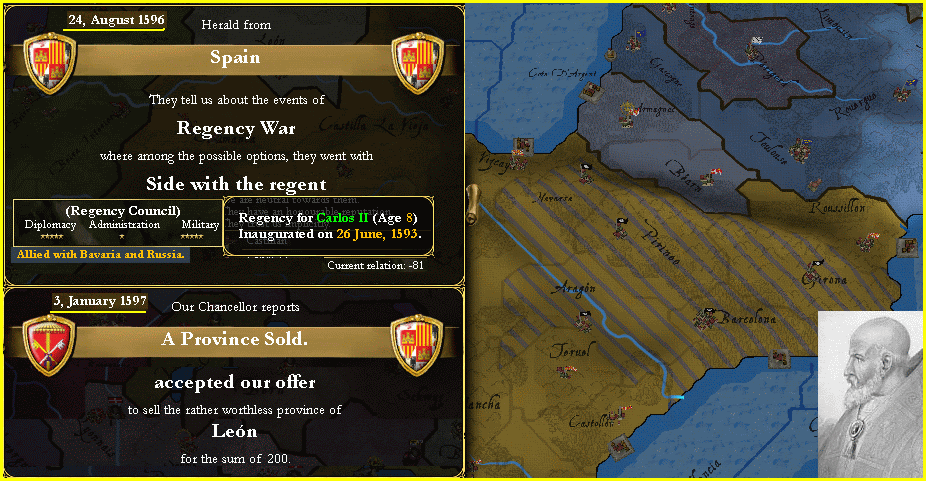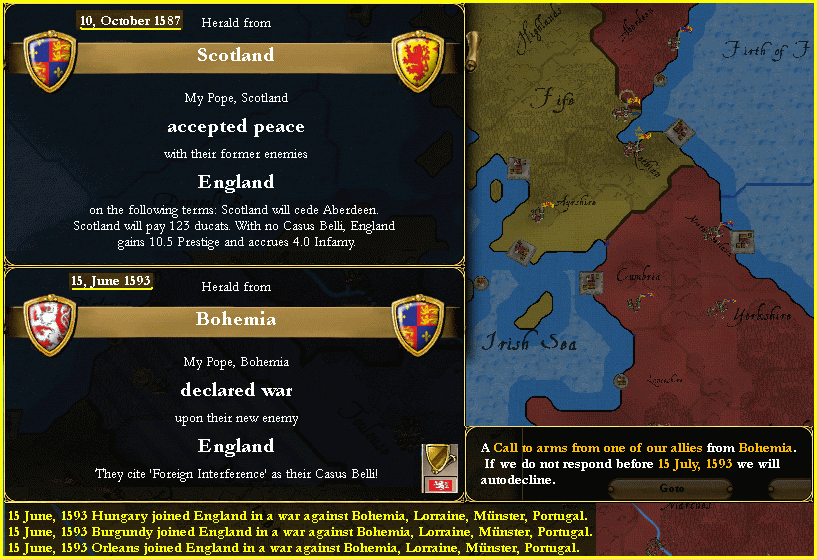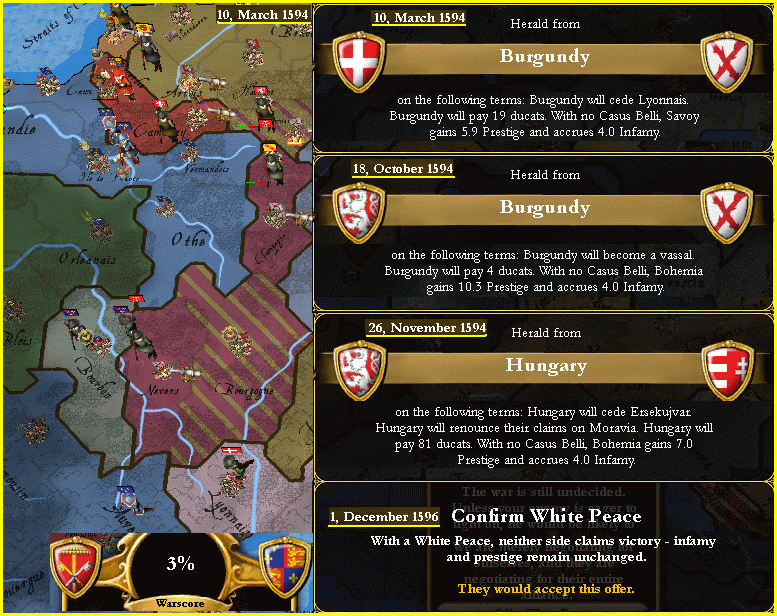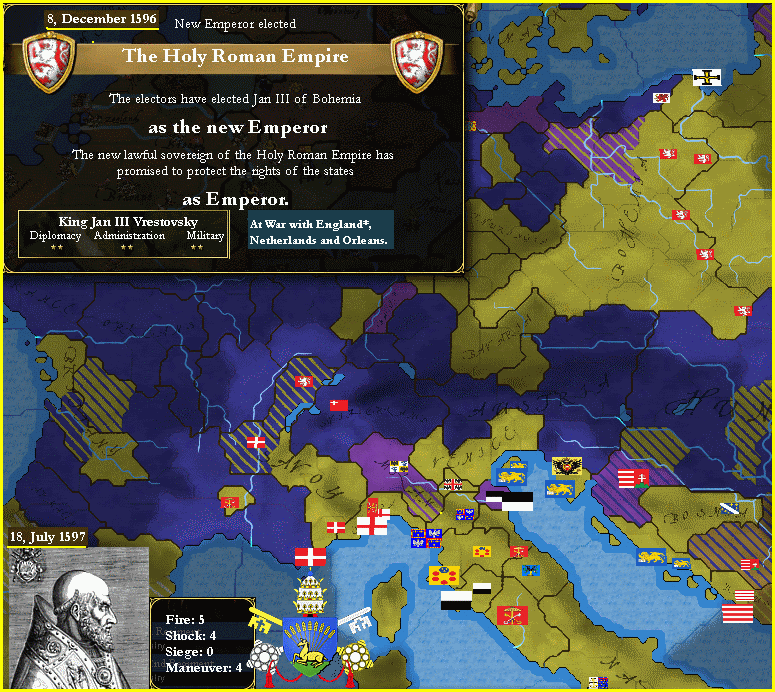aldric:
Aren't any more events in MM to deal with a surviving Burgundy after 1550?
Don't think so. It's the 'new Burgundy' (force-released by Algiers!), so I presume it'll stay, unless it gets conquered of course.
BTW, has León gone independent?!

Sort of, it's the seat of the Anti-Pope Innocentius VII.
CatKnight:
Marcellus sounds like an interesting character. While it's probably wise that Adrio is there to keep him sane, I'm waiting for him to get rid of that
diplomat and set the world on fire.

There is this fiery streak in you, isn't there?

Pharos policy won't do?
 Kroisistan:
Kroisistan:
Catholicism seems like it's on the ropes in the West. It desperately needs a major council, and probably a series of them, to reduce the internal pressure.
Funny you mentioned this...
Or for the Spanish to wind up too busy, poor or distracted to meddle.
...and this.
A fascinating story could be told where a new pope abandons the "Italian project," leaving Rome and the threat of Spanish arms for the relative safety of Constantinople.
It would be fascinating no doubt. But I still see it would be a defeat. It would have to be a calamity I can't now think of for the Pope to abandon Rome (and meddling in Italy). But yes the pendulum has already swayed somewhat.
Chris Taylor:
First let me say congratulations on a well-deserved ACA award!
Thanks!
And you're right Rome does not care that much about what's going on on these heretical islands. Do not forget though they hold some territory in Low Lands, HRE's territory at that.
Smooth move, Utrecht.

I'm guessing that Bohemia handily snuffed out all the Dutch revolts 50 years ago and thus NED is more or less permanently stuck being the Calais-Utretch midget?
Thanks to loki100's explanation I do agree Utrecht's move has some cunning to it. As for the NED midget, sadly, it seems to be the case; I can hardly picture such NED colonising even though they got (scripted?) two islands in the Caribbean.
Can we see a wide shot of Europe's religions in general?
Yeah, sure. It'll come with the next update.
you need a fighting chance at turning the world yellow again. What other major nations are still true Catholics?
I have been using the Bohemia's help here, and our concerted efforts led to Austria and France having been converted. Forced-conversions just wouldn't last though. Apart from Bohemia, the Iberians, my Italian allies, Poland and Denmark are larger Catholic powers; ah, and Trebizond of course.
 CJL78:
CJL78:
your "intervention" in France is completely justifiable. I myself have been considering making events removing "dead" French minors' cores after a certain date much like Netherlands and Greece formation for my submod.
Glad you, like may others, agree with me on that. I support the idea of French minors core-removal!
Other than that, all I have to say is... for the love of God, would you conquer Urbino already?! Their ugly teal color and stupid CoA still divides your Holy realm.

Hehe, I was this close with the previous update. Was at war and occupied the prov but as non-alliance leader; and I couldn't have dowed either due to conclave/regency. Just my luck! Or maybe sign from the almighty: no unlawful expansionism.
 blsteen:
blsteen:
The pope running around Italy with the sword in one hand and...a sword in the other. Cool
Very much what Marcellus II is going to do during his reign. Yet more widely.
kepler:
Hey, I am still catching up, but I have to say this a great AAR so far (around page 6 at the moment)! I didn't know the Papal States had such depth in MM.
Welcome! Glad you're enjoying it. Yeah, me an MM addict, I didn't realise the scope and yeah depth of work dharper put in enlivening the religious aspect of the game. I'd say one has to try the Papacy to really feel how immersive and gripping it is.
all: Sorry guys I was slow at responding and updating, but you know - RL. I barely find time these days to check the forum. But I might get a few days respite and there's some work done on the next update (even though I'm not quite happy with it, feels dry) so an update's coming in a few days. Thanx for your patience.


 and yes all the issues you mentioned will come and haunt Marcellus II throughout his reign.
and yes all the issues you mentioned will come and haunt Marcellus II throughout his reign.

